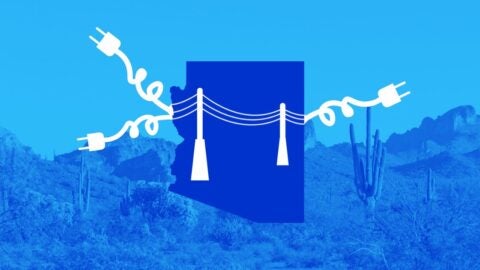Landmark Climate Bill Passes Senate Committee!
This post is by Mark MacLeod, Director of Special Projects, Climate and Air Program, Environmental Defense.
Climate Vote 2007
 This post is part of a series on the work of the Environmental Defense Action Fund to enact an effective climate law. You can help by writing to Congress.
This post is part of a series on the work of the Environmental Defense Action Fund to enact an effective climate law. You can help by writing to Congress.Last night the Senate Environment and Public Works (EPW) Committee passed the Lieberman-Warner Climate Security Act (CSA) of 2007, a comprehensive climate change bill that would set mandatory caps on U.S. greenhouse gas emissions. This landmark vote brings us one step closer to passing national climate legislation. (See my previous post for more on the legislative process.)
CSA is based on a cap-and-trade system, a time-tested approach to reducing pollution that sets a mandatory limit on emissions, and frees companies to hunt for the lowest-cost reductions. The bill also includes a system of carrots and sticks to prompt action from major emitting developing countries, a sensible approach to managing costs, and assistance for workers and low-income consumers impacted by climate policy.
CSA would reduce emissions by almost 20 percent below current levels by 2020 and, coupled with energy efficiency provisions, more than 60 percent by 2050. The strong short-term emissions goal is essential to putting the U.S. on a path that is consistent with the roughly 80 percent reductions scientists say we need by mid-century. The bill also contains a "look back" provision requiring the National Academy of Sciences to periodically update Congress on the latest climate-change science.
Environmental Defense will continue to work to strengthen the bill as it moves to the Senate floor, in particular to strengthen the long-term emissions reduction target and the scientific look-back provision. But the short-term goal gives a strong jumpstart to American entrepreneurs.
Time is running out to solve the global warming crisis. Waiting just two years to enact national climate legislation would double the rate at which the U.S. will need to cut emissions – from just under 2 percent a year to more than 4.3 percent – to bring emissions down to where they need to be by 2020. This would greatly increase costs, and risk our passing the tipping point.












